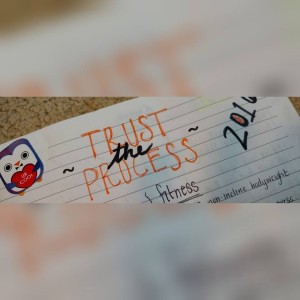Embarking on #intelligentcrosstraining if you’ve been stuck in the “no pain, no gain” mindset (or even the “meh, no thanks” mindset) can feel a little bit weird. Here are a few actual quotes from some skaters during their transition to Intelligent Cross Training:
“I like the program you gave me, but I’m only working out 3 times a week. Can I spend 20 or 30 minutes on the stationary bike afterwards?”
“It’s pretty neat to see my strength increase so much, but I’m not really sore after workouts, so…shouldn’t I be doing more?”
“I’m just going to go for a 10-mile hike this week. That won’t count towards my workout, right?”
In all fairness, I dragged these skaters kicking and screaming into #intelligentcrosstraining and they didn’t really know what they were getting into when they started. But it’s a mindset shift and it takes some time to get settled into it. I’m happy to report that these skaters have embraced the mindset and actually have conversations with each other about whether or not they should cross train on bout weeks (and if so, how much).
Just like with any cross training, fitness, or nutrition program — whether you’ve designed them yourself all along or you’ve purchased a great one — it’s easy to miss the forest for the trees. Like squeezing in your 6th day of cross training this week even though you’re exhausted because that’s what is written on your schedule. Or forcing yourself to bang out those extra 2 reps (with terrible form) because that’s what your workout plan calls for. Or panicking when you eat 2 additional almonds to the snack listed in your menu plan.
Intelligent Cross Training is built on some big rocks. These rocks are a solid foundation of skills that apply to creating your own {successful!} cross training plan, but can also be used in other aspects of your life. If you’re so inclined.
#experimentation
Starting an intelligently designed cross training plan requires you to do some experimentation. And that’s fucking scary. You know why? Because you are basically admitting that you are about to do something and you’re not sure how it will turn out.
Experiments lead to failures. Frequently.
You have to be okay with that. No one ever learned anything from perfection, not really. You have to give yourself permission to struggle and you have to be willing to trust the process.

In my opinion, this is the hardest part. Embracing experimentation means embracing the inherent pitfalls of potential failure. And then accepting that through failure, you will learn and improve. You’re not just learning to trust the process, you’re learning to trust yourself.
#purposefulminimum
Let’s face it, most of us have intense and time-consuming lives outside of roller derby. Derby itself is a very intense and time-consuming hobby. And most of us want desperately to maintain some sort of life/derby balance where we aren’t experiencing additional stress because we also have to cross train an insane amount. (If you are one of the lucky few who get paid to play roller derby and can spend 6 days a week cross training and resting and thinking about it because it’s become your job, more power to you!! And maybe email me and tell me how I can do that.)
So when you cross train, you have to be purposeful about it. Everything you do should be for a reason. This is really just a different way of saying that you need to make the most out of your time. Right?
I hate cleaning the house, but it’s an awful necessity when you have two dogs and a little boy running around. (I actually loathe it. If cleaning the house were a person, I would have buried it’s body in the ravine behind my house years ago.) I don’t want to spend ANY TIME cleaning the house, so I clean the house for a minimum amount of time, but make it purposeful.
Ask yourself this when you’re trying to determine how to do the #purposefulminimum: What’s going to have the biggest impact in the least amount of time?
#collectthedata
Don’t forge blindly ahead.
Yes, you’re trusting the process. But YOU are the most important part of this process. Collecting the data is your way of staying present in the process.
If you’re not collecting data, how will you know what works?
#failwithintent
This is kind of a weird one, I know. It’s all in how you frame it.
Don’t intend to fail. However, if you do fail, look at your failure with the intention to learn from it.
In the realm of Intelligent Cross Training, this is usually a matter of not meeting your goals. You have the data and now is the time to analyze it and figure out where you missed the mark. Being intentional about what you are doing can be difficult, but it can also create learning opportunities.
#feedbackloop
This is where the adjustments are made. All of these prior steps need to become part of a feedback loop, so that you’re constantly being present, purposeful, and intentional with what you are doing.
The ultimate goal of the feedback loop is to get you to pay attention.
How do you feel? Is this working for you? What can your body do today?
Want more?
If you’re interested in more exclusive content, access to my FREE resource library, and the slightly weird workings of my inner mind, you can sign up for the Iron Octopus Fitness email list HERE. Wherein I harass you weekly with all things intelligent cross training, mindset, and…other.
